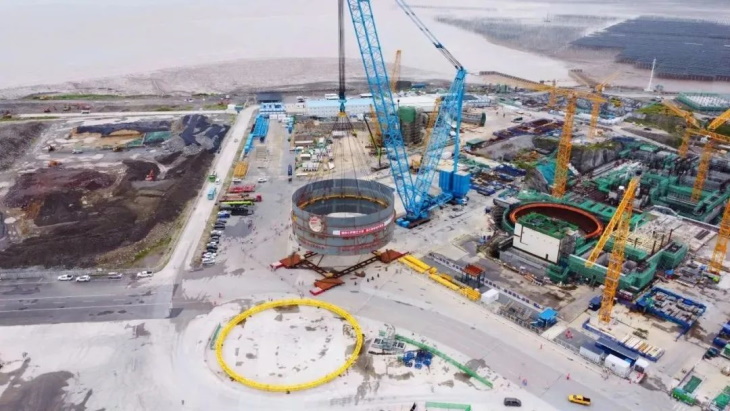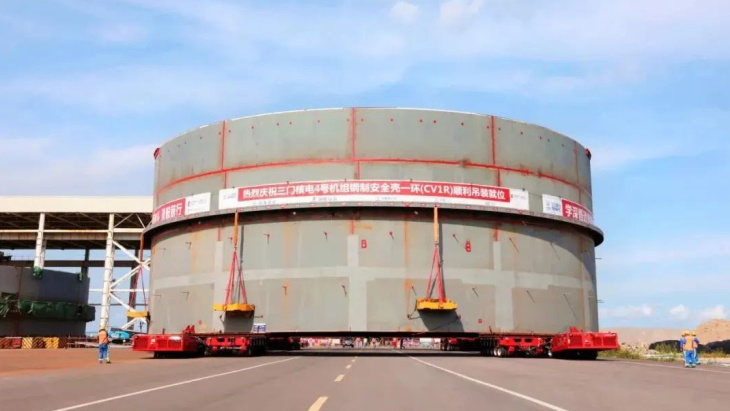Containment vessel takes shape at Sanmen 4
The CV1R module - the largest and heaviest module among the six major components of the steel containment vessel - has been hoisted into place at unit 4 of the Sanmen nuclear power plant in China's Zhejiang province.

The module being hoisted into place (Image: SNERDI)
The module - weighing 1024 tonnes - was successfully installed on 29 August in an operation lasting 2 hours and 15 minutes, the Shanghai Nuclear Engineering Research and Design Institute (SNERDI) announced.
The CV1R includes various penetration casings, equipment gates, accessory plates and other components.

The CV1R module was moved closer to the nuclear island prior to its hoisting (Image: SNERDI)
"The successful installation of CV1R created good prerequisites for construction operations in the nuclear island reactor building, and also accumulated valuable experience for subsequent large-scale hoisting work," SNERDI said.
The construction of two new reactors at each of the Sanmen, Haiyang and Lufeng sites in China was approved by China's State Council in April 2021. The approvals were for Sanmen units 3 and 4, Haiyang 3 and 4 and units 5 and 6 of the Lufeng plant. The Sanmen and Haiyang plants are already home to two Westinghouse AP1000 units each, and two CAP1000 units were approved for Phase II (units 3 and 4) of each plant.
The CAP1000 reactor design - the Chinese version of the AP1000 - uses modular construction techniques, enabling large structural modules to be built at factories and then installed at the site.
The first safety-related concrete was poured for the nuclear island of Sanmen 3 on 28 June last year, marking the official start of its construction. The first concrete for that of unit 4 was poured on 22 March this year.
The largest and heaviest module - the cuboid-shaped CA20 - was installed at Sanmen 4 in April.
Researched and written by World Nuclear News
- China Institute of Atomic Energy
- Nuclear Power Institute of China
- Southwestern Institute of Physics
- China Nuclear Power Operation Technology Corporation, Ltd.
- China Nuclear Power Engineering Co., Ltd.
- China Institute for Radiation Protection
- Beijing Research Institute of Uranium Geology (BRIUG)
- China Institute of Nuclear Industry Strategy (CINIS)
- China Nuclear Mining Science and Technology Corporation


